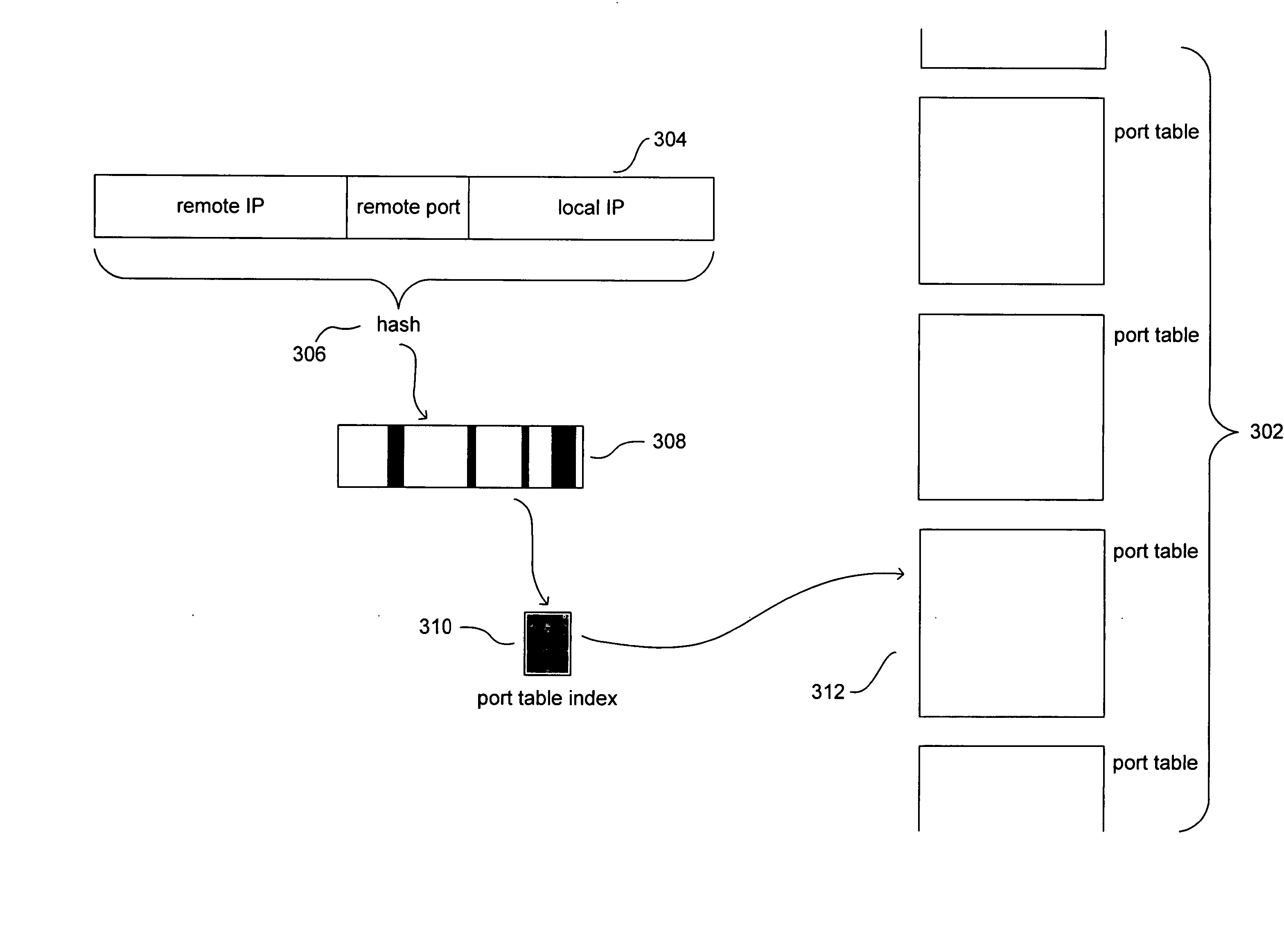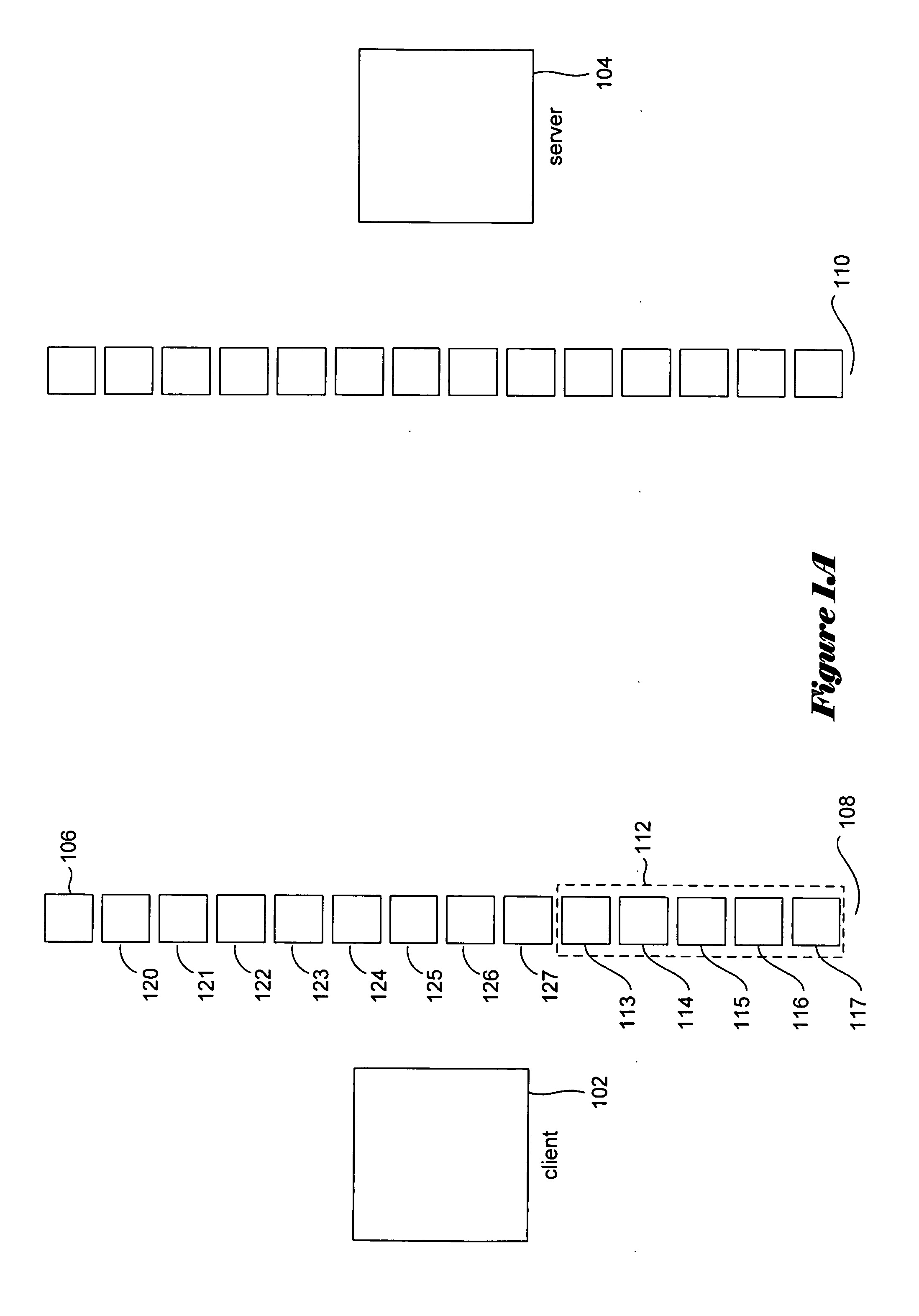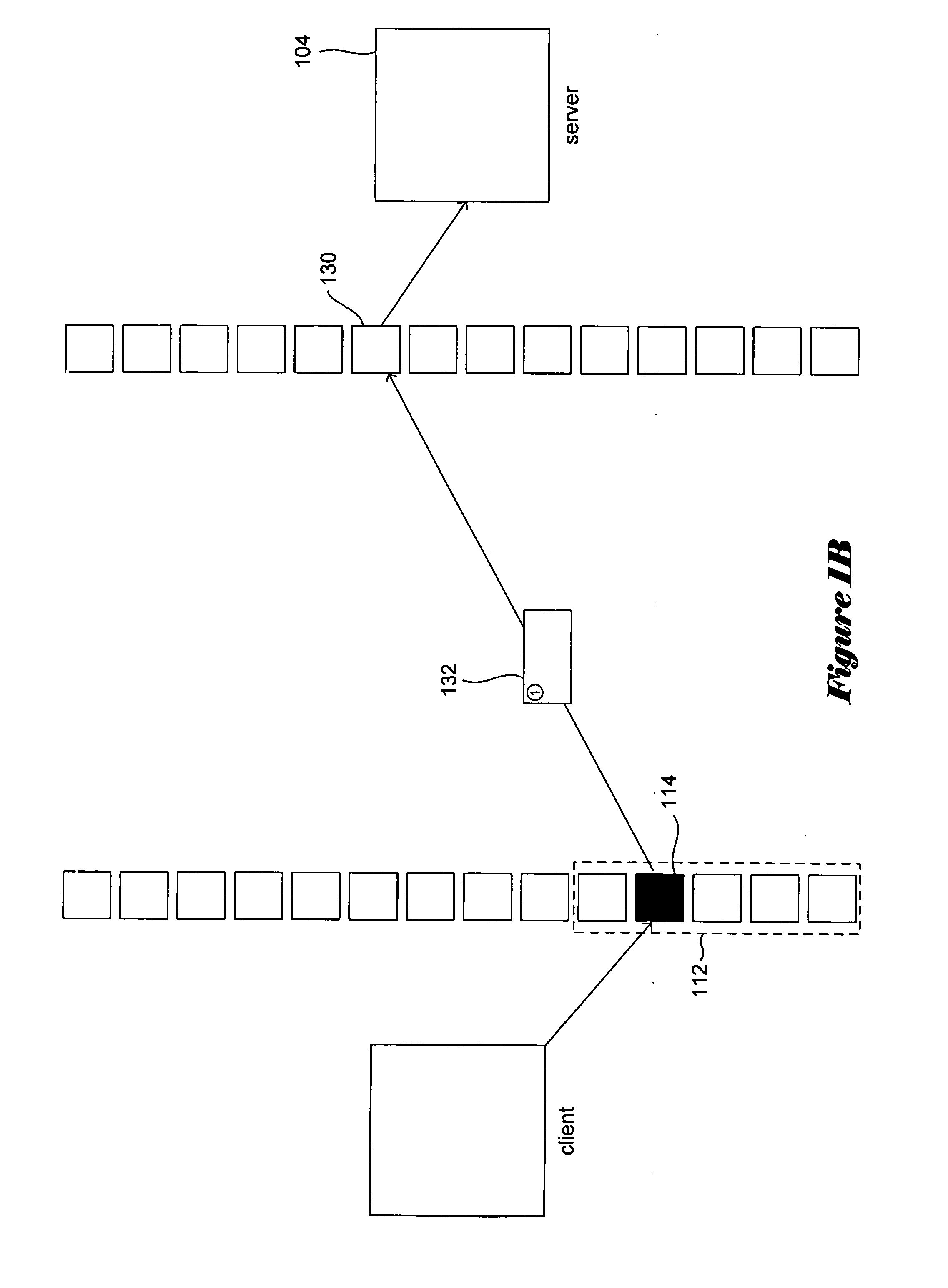Method and system for managing computational resources
a computational resource and management method technology, applied in the field of computer algorithms and resource management, can solve the problems of additional computational overhead, failure of subsequent attempts to allocate ephemeral ports, and pool of ephemeral ports together representing a potentially limitable computational resource, etc., to achieve efficient management of ephemeral ports, facilitate immediate reallocation and use of resources, and avoid connection-request
- Summary
- Abstract
- Description
- Claims
- Application Information
AI Technical Summary
Benefits of technology
Problems solved by technology
Method used
Image
Examples
Embodiment Construction
[0026] Method and system embodiments of the present invention are directed to efficient management of a pool of computational resources. Described embodiments are directed to management of communications ports. As discussed above, a pool of communications ports may represent a limiting resource for computer systems, and communications ports are currently sub-optimally managed using complex data structures and wait periods in many computer systems. Methods of the present invention provide efficient management of a pool of communications ports. Alternative embodiments of the present invention may be employed to manage any number of different types of computer resources that are allocated from a pool, used for some period of time, deallocated and returned to the pool along with resource-reallocation-enabling information that facilitates immediate reallocation and use of the resource. A communications-protocol example is used as a context to describe certain embodiments of the present i...
PUM
 Login to View More
Login to View More Abstract
Description
Claims
Application Information
 Login to View More
Login to View More - R&D
- Intellectual Property
- Life Sciences
- Materials
- Tech Scout
- Unparalleled Data Quality
- Higher Quality Content
- 60% Fewer Hallucinations
Browse by: Latest US Patents, China's latest patents, Technical Efficacy Thesaurus, Application Domain, Technology Topic, Popular Technical Reports.
© 2025 PatSnap. All rights reserved.Legal|Privacy policy|Modern Slavery Act Transparency Statement|Sitemap|About US| Contact US: help@patsnap.com



